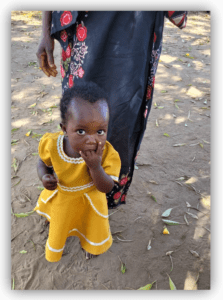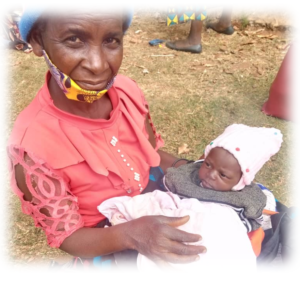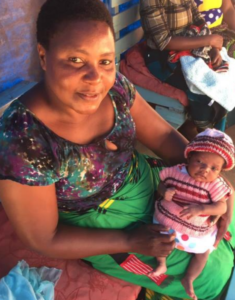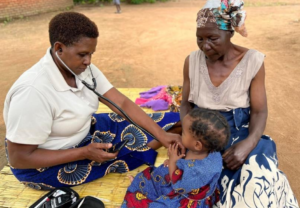When Rhoda showed up with a small bump of a belly for prenatal care at a rural clinic, the midwives told her that she would need to deliver at the District Maternity Hospital. She was only sixteen and they foresaw a difficult birth. It would be risky to attempt to deliver her in a facility that had minimal capacity to offer emergency obstetric care and no capacity to conduct a cesarean section. They reminded her each visit and when her labor started on October 23rd, she made her way to Bwaila (the District Hospital). The labor was indeed hard. With no pain medication, Rhoda suffered the onslaught of her contractions without progress. Finally in the afternoon of the follow day she delivered a baby boy by cesarean. Her son had experienced a great deal of stress during the labor and his condition was poor, rather than stay with his mother he was sent to the nursery, where he would receive oxygen and share a warmer with one or two other babies. On the 25th Rhoda’s abdomen was painfully distended and nurses observed green discharge oozing from the wound. She and her baby were transferred to the Regional Hospital for additional treatment. On the 26th, clinicians reopened the wound and her abdomen was irrigated. She did not improve. Nor did her son. On November 4th she had a total hysterectomy – uterus, ovaries, hope of future children gone. On the same day, her baby died. She was discharged home on November 11th.
Statistically, Rhoda is a success. She is not counted among the many African women who die in childbirth. Rhoda is a survivor. But, when we focus in on her story and the struggles she will endure from this point forward, we can only count it as a tragedy. There are so many more women like Rhoda on the continent who struggle to go on after traumatic births, which leave them both physically and emotionally wounded. Join us to support the re-empowerment of Rhoda and women like her and to bring attention to their lives. Donate Now




